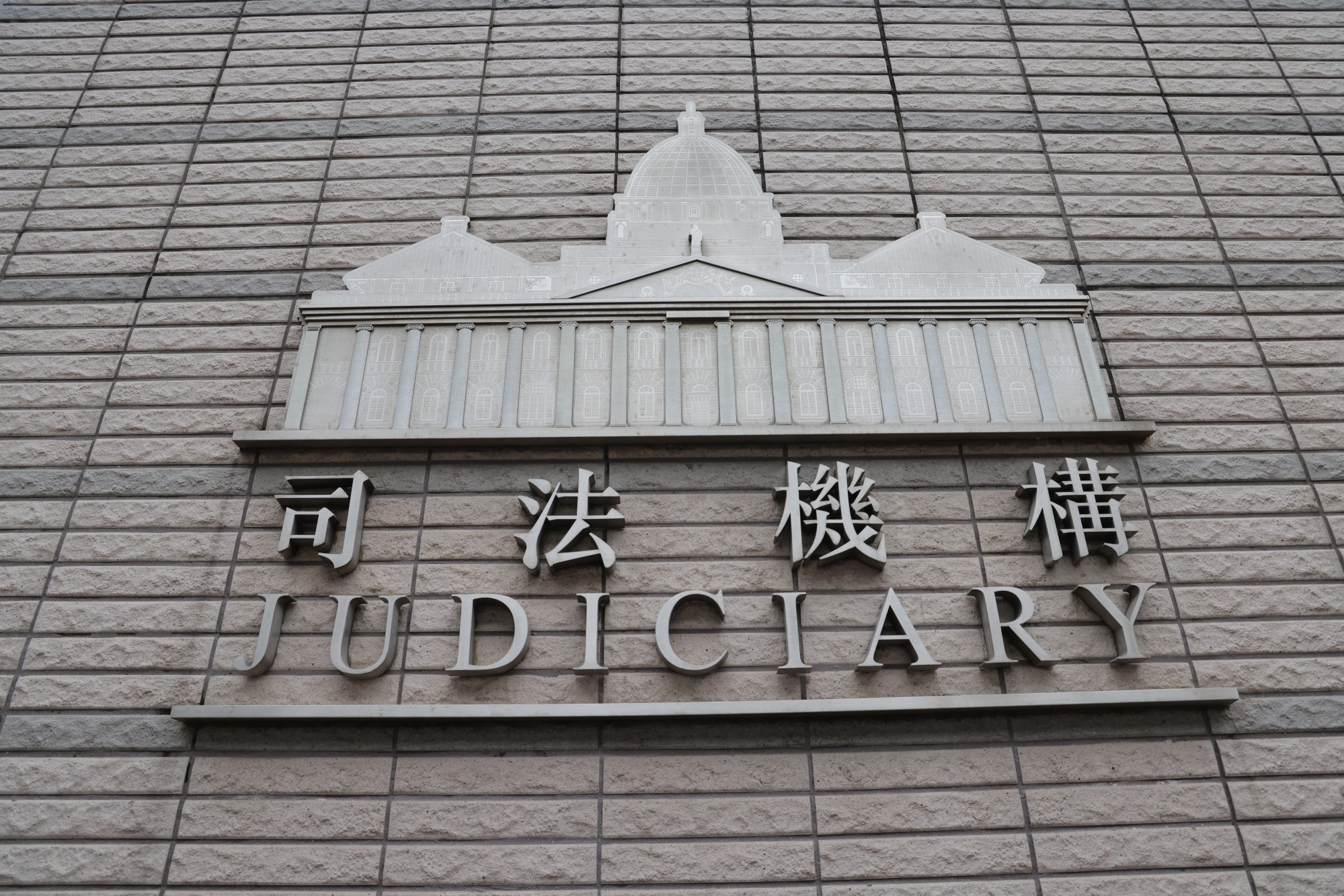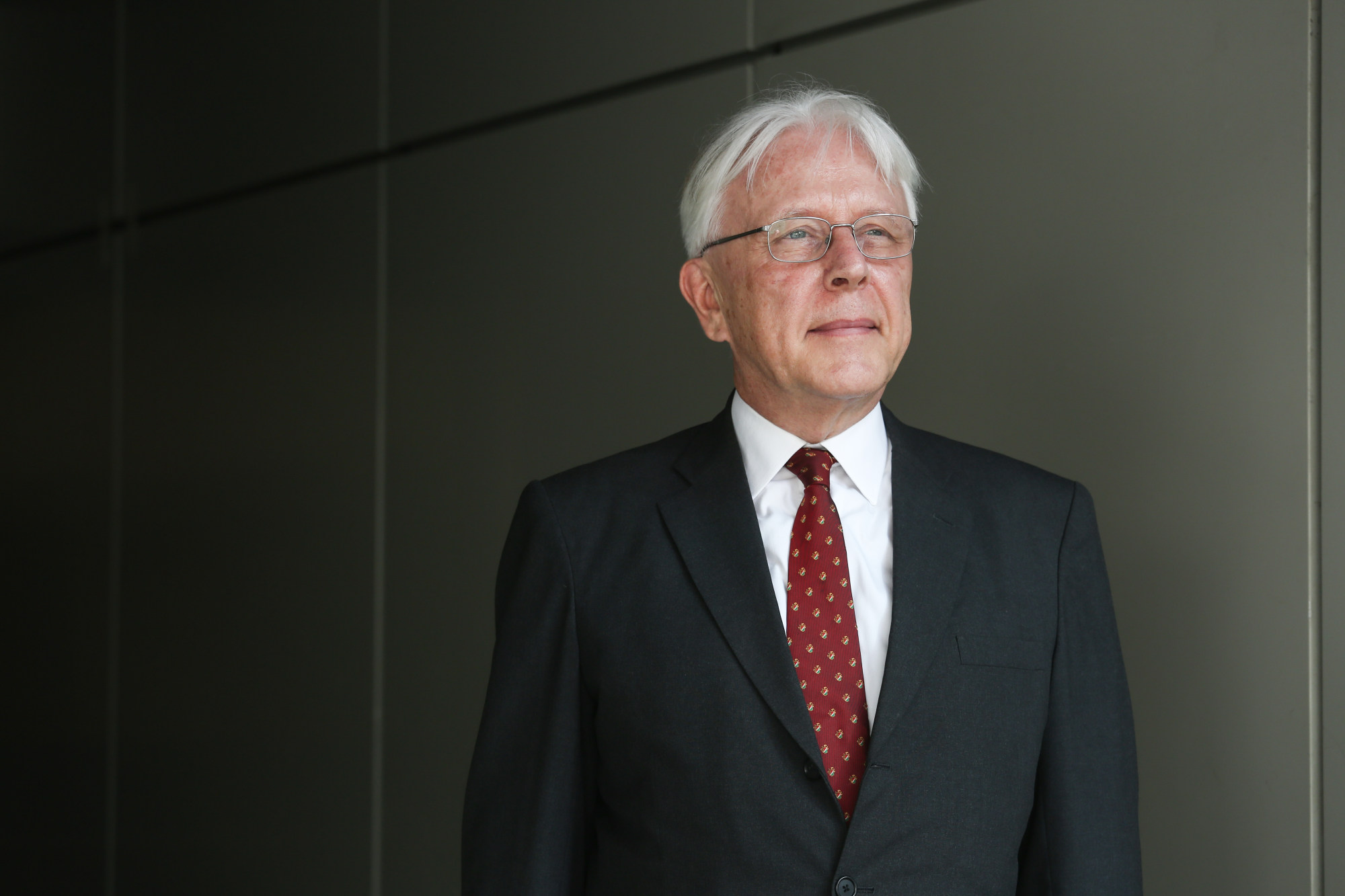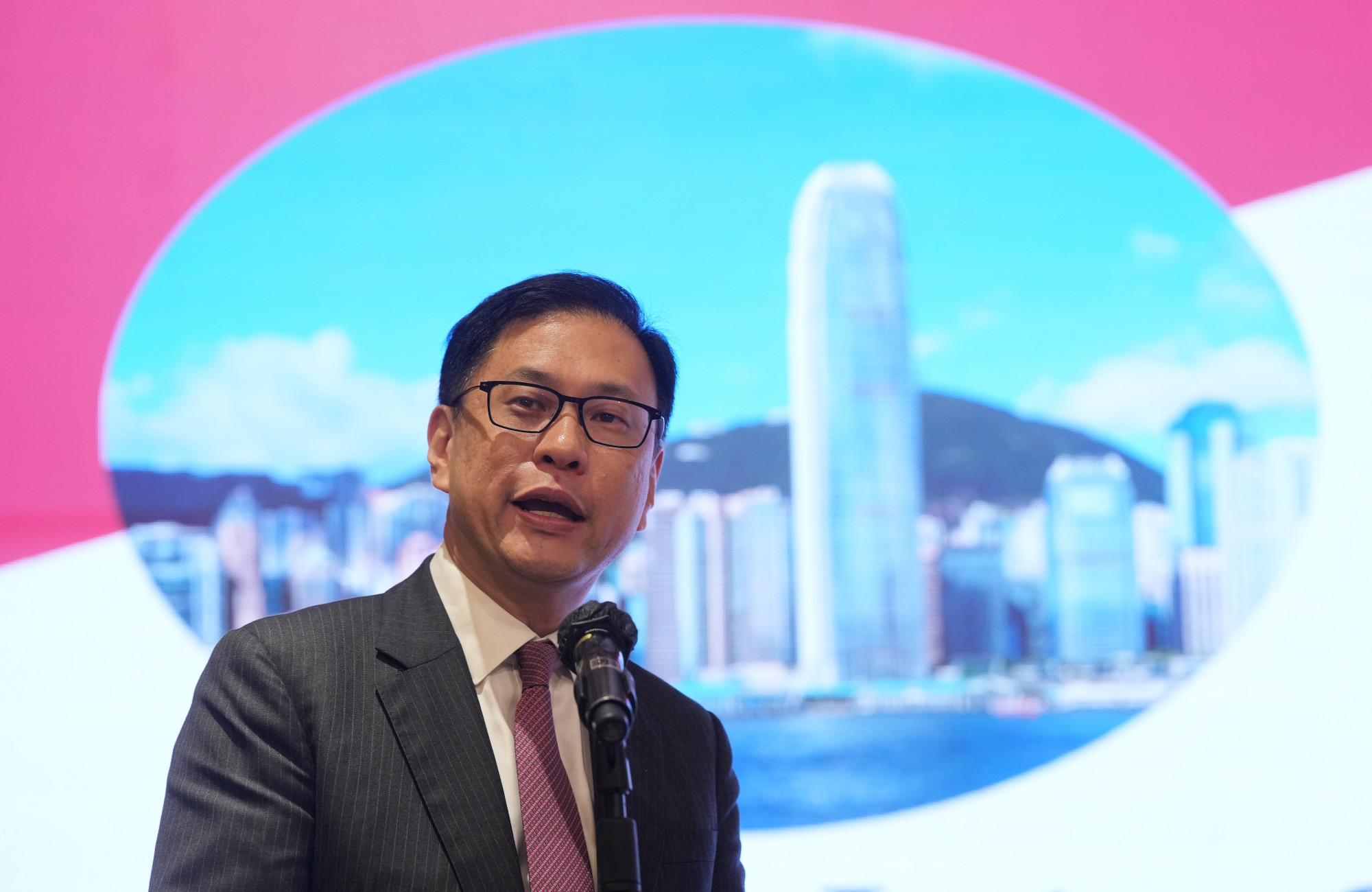Cases delayed as Hong Kong judiciary struggles to fill vacancies, with pay and proposed sanctions among reasons potential candidates are put off
[ad_1]
There were unfilled posts at all levels, with a higher vacancy rate in the High Court.

The judiciary said other reasons for the delays included the complexity of cases and problems caused by the Covid-19 pandemic.
Jackson Poon Chin-ping, a barrister who was a deputy judge at the District Court in 2014, said low pay was a major reason for judiciary vacancies.
“There is still a gap between joining the bench and working in private practice, even after a pay rise this year,” he said.
‘Strong bar’ in Hong Kong enables independent judiciary, association head says
‘Strong bar’ in Hong Kong enables independent judiciary, association head says
A High Court judge will earn HK$343,759 a month if the increase is approved by the Legislative Council. Special magistrates, the lowest rank, which the judiciary plans to phase out, are paid close to HK$100,000 a month.
“A busy senior counsel can bag up to HK$600,000 a month, let alone those well-known ones,” Poon said.
He added another reason lawyers would be reluctant to become judges was that they were barred from private practice after they left their posts.
The nature of the work was also off-putting for some, Poon added.
“Unlike a barrister or a solicitor, who often works with a team, serving as a judge means you fight alone most of the time,” he said.
Poon added that some judges had told him a job in the judiciary was “very boring”.
Senior Beijing official in Hong Kong hits out at proposed US sanctions
Senior Beijing official in Hong Kong hits out at proposed US sanctions
He said he remained concerned that gaps on the bench would persist if there was no significant pay increase.
Alfred Ip Woon-shun, who spent a month as a deputy judge in the District Court in 2017, said he decided against staying on because of the additional time and effort needed to adapt to working full-time in the judiciary.
A deputy district judge exercises all the powers and responsibilities of a district judge, but is appointed for only a specified period or for specific cases.

Ip said there was a disparity between his skills and experience, which focused on project and client management, and the demands of being a judge, which involved analysing evidence and legal arguments and making decisions.
“I would have had a steeper learning curve if I became a full-time judge,” he said.
Grenville Cross SC, a former director of public prosecutions, said difficulties in the recruitment of talent for the judiciary, especially at the senior level, was not unique to Hong Kong.
A recent analysis by the Criminal Bar Association of the United Kingdom and British newspaper The Independent found that a record 51 trials were delayed by the shortage of judges between April and June this year and 100 Crown Court trials did not have a judge in the first half of 2023.
But Cross said the US lawmakers’ recent proposals to sanction members of the Hong Kong judiciary and other legal figures might cast a shadow over future recruitment efforts.
Hong Kong hits back as Catholic leaders attack ‘persecution’ of Jimmy Lai
Hong Kong hits back as Catholic leaders attack ‘persecution’ of Jimmy Lai
A group of lawmakers from the US House of Representatives and Senate earlier this month proposed the Hong Kong Sanctions Act to push the Biden administration to sanction 49 city officials, judges and prosecutors for alleged persecution of opposition activists.
Those targeted included Secretary for Justice Paul Lam Ting-kwok and Chief Justice Andrew Cheung Kui-nung.
The proposal followed a report by the US Congressional-Executive Commission on China in May, which asked the government to sanction 29 Hong Kong judges selected to hear national security cases.
Cross said the US lawmakers’ action could have some effect on judiciary recruitment, but emphasised it was too early to tell as the sanctions bill might not be approved.

Victor Dawes SC, chairman of the Hong Kong Bar Association, warned in September that any US sanctions against local judges could pose a “real threat” to the city’s legal system and prevent the judiciary from recruiting top talent.
Senior administration official Eva Yam Ya-ling insisted that the mechanism for pay adjustment for the judiciary worked well and needed no changes as she was questioned by lawmakers about staffing problems in the courts at a Legislative Council panel meeting last week.
The Hong Kong Bar Association and Law Society have expressed the hope that judges would get a bigger pay rise and lawmakers have asked to review the factors taken into account when the increase was decided.
Hong Kong slams UK over claims city’s legal system at ‘critical juncture’
Hong Kong slams UK over claims city’s legal system at ‘critical juncture’
Two legislators who are also lawyers said it was important for the judiciary to find ways to attract legal talent to the bench.
“It needs to make them think that staying with the judiciary is very important to Hong Kong, to the ‘one country, two systems’ governing principle, and even the world,” Priscilla Leung Mei-fun said.
Holden Chow Ho-ding added the judiciary should put more effort into public education to emphasise the sense of mission of the justice system and bring in more people.
[ad_2]
Source link





